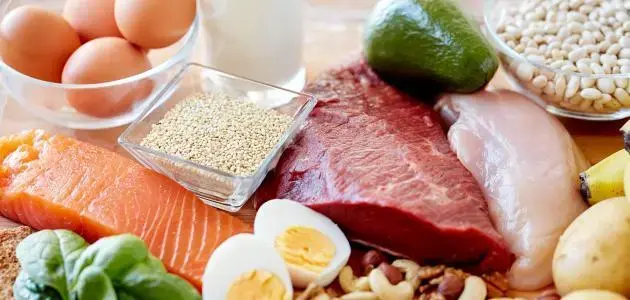Top Food Sources of Vitamin B12
Vitamin B12 is mainly found in animal-based foods, especially meat and dairy. But for vegetarians, there are also some fortified plant-based options out there. Here are some of the best sources of B12:
1. Liver and Kidneys
Lamb liver is packed with B12 — just 100 grams gives you about 1500% of your daily needs! It also has copper, selenium, vitamin A, and B2. Beef liver is also a great choice, offering around 990% of your daily B12 requirement.
2. Clams
Clams are small but mighty when it comes to nutrients. Just 20 small clams can provide 3300% of your daily B12! They’re also rich in iron and antioxidants.
3. Sardines
These tiny fish are nutrient-dense, offering more than double the daily value of B12 per cup (about 150g). They're also high in omega-3s, which help fight inflammation and support heart health.
4. Beef
Lean beef is another solid source. A 100g serving gives you around 102% of your daily B12, plus other B vitamins, zinc, and selenium. It's better to grill rather than fry to keep the nutrients intact.
5. Fortified Cereals
Great for vegetarians! These cereals are made with synthetic B12 and can help boost your intake. Just make sure to pick ones that are low in added sugar and high in fiber or whole grains.
6. Tuna
Tuna is rich in protein and B12. A 100g portion of fresh tuna gives you about 160% of your daily B12 needs. Even canned tuna in water has a decent amount — 165g gives you about 85%.
7. Fortified Nutritional Yeast
This cheesy-tasting powder is popular with vegans. Two tablespoons (about 16g) provide around 130% of your daily B12. It’s a convenient way to boost B12 in a plant-based diet.
8. Trout
This freshwater fish is loaded with protein, healthy fats, and B vitamins, including B12. A 100g serving delivers about 125% of your daily requirement and over 1300mg of omega-3s.
9. Salmon
Salmon is a superstar when it comes to omega-3s and B12. Half a cooked fillet (178g) gives you over 80% of your daily B12 and a big dose of healthy fats and protein.
10. Fortified Plant-Based Milk
Plant milks like soy, almond, and rice are often fortified with B12. One cup (240ml) of fortified soy milk can give you up to 45% of your daily needs — perfect for vegans.
11. Dairy Products
Milk and cheese are classic sources. A cup of whole milk has about 18% of your daily B12. Swiss cheese is one of the richest, with 30g providing around 16%. Your body actually absorbs B12 from dairy better than from meat or eggs.
12. Eggs
Eggs offer a good mix of B12, B2, and vitamin D. Two large eggs (100g) give you about 22% of your B12 for the day. Most of the B12 is in the yolk, so eat the whole egg to get the full benefit.
13. Fortified Tofu
A 100g serving of fortified tofu can give you around 60% of your daily B12 — a great option for plant-based diets.
14. King Crab
100g of king crab delivers about 11.5 mcg of B12 — that’s around 479% of what you need daily!
What About Supplements?
Most people get enough B12 from food. But some may need supplements — especially vegetarians, older adults, or people with conditions affecting nutrient absorption. Pregnant and breastfeeding women on plant-based diets may also benefit. If you’re over 50, supplements are often recommended since your body may struggle to absorb B12 from food.
So, What is Vitamin B12?
Vitamin B12 (aka cobalamin) is a water-soluble vitamin that your body can’t make on its own — you need to get it from food or supplements. Unlike other water-soluble vitamins, your body stores B12 in the liver for years. B12 comes in different forms like hydroxocobalamin and methylcobalamin.
Why B12 is Important
B12 plays a key role in making red blood cells and DNA, supports nerve function, and helps with cell metabolism. Without enough of it, your body can run into serious trouble.
How Much B12 Do You Need?
| Age Group | Recommended Daily Intake (mcg) |
|---|---|
| Infants 0–6 months | 0.4 |
| Infants 7–12 months | 0.5 |
| Children 1–3 years | 0.9 |
| Children 4–8 years | 1.2 |
| Children 9–13 years | 1.8 |
| Teens & Adults (14+) | 2.4 |
| Pregnant women | 2.6 |
| Breastfeeding women | 2.8 |
Signs of B12 Deficiency
Low B12 can lead to both physical and mental symptoms. Since B12 helps make red blood cells, a deficiency might cause:
- Fatigue and low energy
- Dizziness, especially when standing
- Pale skin
- Shortness of breath (especially during exercise)
- Swollen or red tongue
- Bleeding gums
- Loss of appetite
- Digestive issues like diarrhea or constipation
Common Causes of Deficiency
- Pernicious anemia: An autoimmune condition affecting B12 absorption.
- Low intake: Mostly affects people following strict vegan diets.
- Poor absorption: Especially in older adults or those with GI issues. Certain meds can also interfere with absorption.
Want to Learn More?
Check out our video for a quick look at foods rich in B12!
Leave a comment
Your email address will not be published. Required fields are marked *




